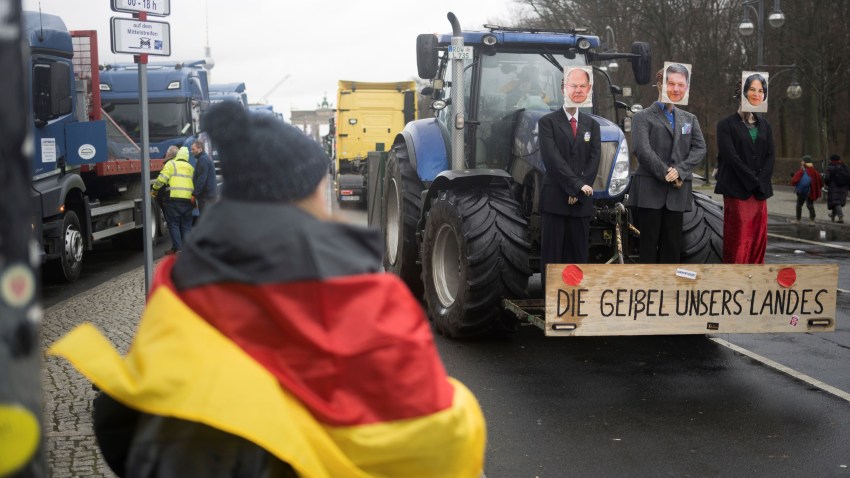As 2023 came to an end, a panel of experts of the Society for the German Language aptly announced that they had chosen Krisenmodus, or crisis mode, as the word of the year. The selection reflected Germany’s seemingly permanent state of emergency in recent years, starting with the COVID-19 pandemic and the energy crisis resulting from the Russia-Ukraine war and continuing with more recent challenges like inflation and economic recession, as well as the Israel-Hamas war in Gaza. To these, Berlin can now add the eruption across the country of protests by farmers that began several weeks ago and have now converged on Berlin.
The farmers protests were triggered by the consequences of a year-end court ruling that further compounded the challenges facing the ruling Ampelkoalition, or traffic-light coalition, comprising Chancellor Olaf Scholz’s Social Democrats, the Greens and the Free Democrats. The ruling left the coalition government with a funding gap of 60 billion euros through 2027. The ensuing scramble to fill the budget hole has forced the Ampelkoalition to craft a tenuous compromise that includes both spending cuts and revenue increases.
While the potential political fallout of these decisions is too early to ascertain, the farmers’ protests are just one of several warning signs pointing toward a backlash from organized constituencies. As a result, 2024 looks to be a year of continued headaches and reactive crisis management for the Ampelkoalition, which had hoped instead to enjoy some breathing room to finally find its footing. The budget crisis, however, will test both the durability of the Ampelkoalition and the political skills of its leaders to transition out of Krisenmodus.

